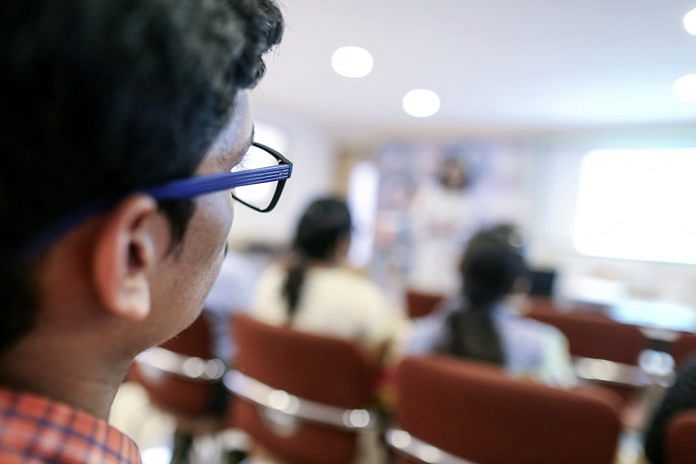There is a lot Indian universities can do to check sexual harassment, but they don’t.
Indian universities are infamous for not addressing sex even as a part of students’ lives, let alone address the problem of sexual harassment.
The first action that universities can take is to define what constitutes sexual harassment. The Indian Penal Code under Sections 354 and 509 defines sexual harassment as “physical contact and advances involving unwelcome and explicit sexual overtures; or a demand or request for sexual favours; or showing pornography against the will of a woman; or making sexually coloured remarks”. This definition seems inadequate since it excludes other groups apart from women who might be at the receiving end of sexual harassment. Multiple studies suggest that sexual harassment cases are often underreported therefore it seems logical to include all people that might be potential victims in our definition of it, regardless of their sexual orientation, gender identity or age.
Universities must conduct studies to determine the pervasiveness of this problem in their campuses so they could allocate adequate resources towards the prevention of and remedy to cases of sexual harassment. Universities also need to accurately diagnose the causes of this problem.
Also read: ACJ sexual harassment row: Deja vu as chairman says college targeted for being liberal
Three major scenarios seem possible.
The first scenario, although statistically unlikely, is that the perpetrator might be suffering from an antisocial personality disorder. Such people lack regard for morals and social norms and thus are very difficult to deal with. A rational approach might be of use in such cases where the perpetrator can be convinced that to reap the benefits of a society – social order, peace, freedom, economic prosperity – they have to follow its norms as well because not doing so is likely to land them in jail.
Second, there are people who do follow social norms in other areas of life but lack regard and respect for the rights of women. Such people might just be the products of a patriarchal society that portrays women as inferior and thus less deserving of fundamental human liberties. Universities need to address the fact that women, across cultures, have been treated as sub-humans and it has seeped deep into our psyche. People often act in ways without even realising that they are demeaning or derogatory towards women. This problem can be addressed using education programmes where students told about the problems of sexism and are made aware of their own biases against women.
Third, there could be people who, despite being aware of the historical disadvantage that women suffer, continue engaging in behaviours which constitute sexual harassment. Although what motivates such people and their psychological disposition seems unclear, it should be taken seriously and studied.
Along with these, Indian universities need to set in place mechanisms through which victims can report such instances in an anonymous, transparent and fear-free manner. Investigations must be conducted in an objective and neutral manner, and in case such allegations are found to be true, immediate and strong action must be taken.
Shubham Jain is the winner of the opinion writing contest on the ninth edition of Democracy Wall. This was in a response to the question asked by ThePrint: What can Indian universities do to address sexual harassment on campus?
Democracy Wall is a monthly free speech campus initiative organised by ThePrint in collaboration with Facebook.




Article Full Of Stupidity. Looks He Has Been Paid To Write This Article.
But it has been defined by UGC Regulation.